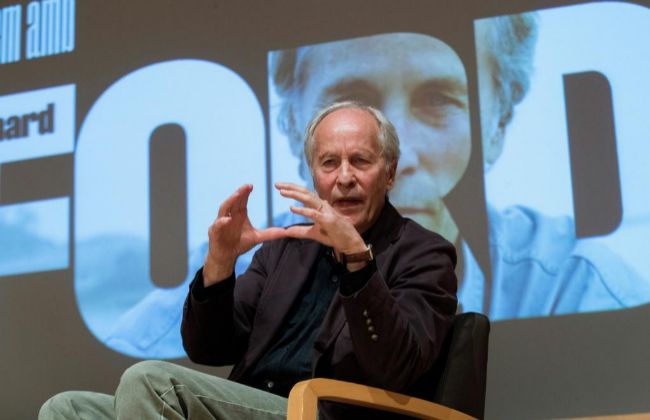Richard Ford is the last Mohican of the great American storytellers. In that same tribe, the ax of war still rises - and never better, if we think of a Meridian of blood or the Trilogy of the border - the harsh, twilight and dreamlike Cormac McCarthy. But since the death of his great friend James Salter, Richard Ford has remained alone in that latitude of American writers who reach a style not to name, but to create a time, such as Richard Yates in the Revolutionary Way or John Cheever in his story The swimmer America was this, as Faulkner and Fitzgerald had been before, and a little Ernest Hemingway - more scattered around the world map - with Henry James in the background, Melville and Mark Twain. We talk about this type of writers, about this race of men .
Richard Ford has come to that realm almost without making noise, because he began to read with 18 years and has always confessed that kind of lack of time , a kind of urgency to recover his lost readings with credible slowness. He was a sports journalist, hunter and weightlifter , with his fictions as coordinates north of his travels. He found himself as a writer in the great American epic of a seemingly common man who rises from his invisible ashes, who has been miserable in life and now approaches that intangible substance of detached happiness, like the talent in Fitzgerald, of the movement of the wings of a butterfly: he succeeds with his character Frank Bascombe, protagonist of several of his stories. But it is not fragmented or delivery autobiography, but a narrative of a life and a time with recognizable elements of his biography, yes, to reach other chiaroscuros of the reality that he imagines or glimpses, and there is his likelihood and strength.
It is what happens with one of the best stories of Lament what happened , the new book by Richard Ford that Anagrama publishes, as it says in his sash, in world premiere. I refer to Displaced , which begins like this: "When your father dies and you are only sixteen, many things change." Richard Ford knows it, because his father also died when he was 16 years old . His mother sent him with his maternal grandmother, who ran a small hotel in Arkansas: probably the same guest house in front of which the protagonist, Henry Harding, lives, who has just lost his father and tries to find no answers, but the right questions It is something constant in the book: all the Lament characters what happened look for those questions that shoot themselves in a morning mirror loneliness without answers, although they somehow know that they have reached the end of somewhere, that they have taken things the best they could and that makes no sense to apologize, despite the title, because there was no other way to do it.
Something like this follows from the story Nothing to declare , in which two old lovers meet again in the glasses after dinner at a hotel. Each one sees in the other what has become, because the past is no longer a possibility. And Sandy's father, that man who walks through New Orleans wondering if he wants to be unfaithful to the wife he seems to love, although he doesn't even care to do it or not, looks us in the eye and assures us that there is too much complacency, because we We value or expect to be valued simply by doing what we have to do. Not only the characters of Nothing to declare stroll through New Orleans: the whole book is immersed in that atmosphere of desolation, wet and wild, with its European wind of daytime vampires, before or after Hurricane Katrina . Like that father from Rumbo a Kenosha who travels through a devastated landscape, with ships on collapsed houses and neighborhoods turned into an apocalyptic extension of sinister threat, when his 12-year-old daughter wants to give her friend from school a souvenir card, because the The girl's family has lost their home during the hurricane and emigrated to Kenosha. However, your daughter does have a question. Before meeting her friend, Louise asks her father: "Why did you get divorced?" He will answer that he no longer remembers, and will continue driving. It is the other possibility that Ford offers us: before the last void of all the answers, it is better not to remember what happened.
Happy is an extraordinary story in which two couples of friends - with a writer and writer in each of the marriages - in the beach house of one of the couples, are visited by the widow of the editor of both, who has just died. This is where Richard Ford is best seen as a cross between Carver and Scott Fitzgerald , which is the same as saying a Scott Fitzgerald without foxtrot , but with the same level of adrenaline and martinis. A man spends the following summer at the death of his wife in the coastal house they planned to buy and a child cries, while sleeping, for the loss of the father. We will accompany them. Nothing to regret, because this is living.
According to the criteria of The Trust Project
Know more- culture
- literature
- U.S
- Princess of Asturias Awards
Literature Elizabeth Gilbert, the multiple layers of femininity
LiteratureBestiary of the letters in Formentor
The Paper Sphere Wolfram Eilenberger: "The identity issue must be taken from the extreme right"

